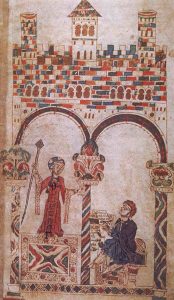 “Also in civil law, as they call it, there are many things that reflect human affections instead of natural laws. For what it more foreign to the law of nature than slavery?….a good man will fashion civil constitutions according to a just and good rule, that is, with both divine and natural laws. And whatever is instituted against these laws can be nothing but unjust.” Philip Melanchthon, Commonplaces: Loci Communes 1521, trans. Christian Preus (St Louis: CPH, 2014), p. 66. [Emphasis added]
“Also in civil law, as they call it, there are many things that reflect human affections instead of natural laws. For what it more foreign to the law of nature than slavery?….a good man will fashion civil constitutions according to a just and good rule, that is, with both divine and natural laws. And whatever is instituted against these laws can be nothing but unjust.” Philip Melanchthon, Commonplaces: Loci Communes 1521, trans. Christian Preus (St Louis: CPH, 2014), p. 66. [Emphasis added]
Philip Melanchthon (1497-1560) was Martin Luther’s most significant colleague in Wittenberg. As the primary author of the Augsburg Confession and the Apology of the Augsburg Confession, he played a major role in the establishment of the intellectual foundations of Lutheran theology. If the Reformation had never occurred, Melanchthon most likely would have been a well-known classical humanist and scholar from the sixteenth century.
In the quote above, Melanchthon uses the existence of slavery as a legal institution as an example of how civil law sometimes contradicts natural law. It’s clear that Melanchthon understood slavery to be against the law of nature and, therefore, immoral and unwise.



